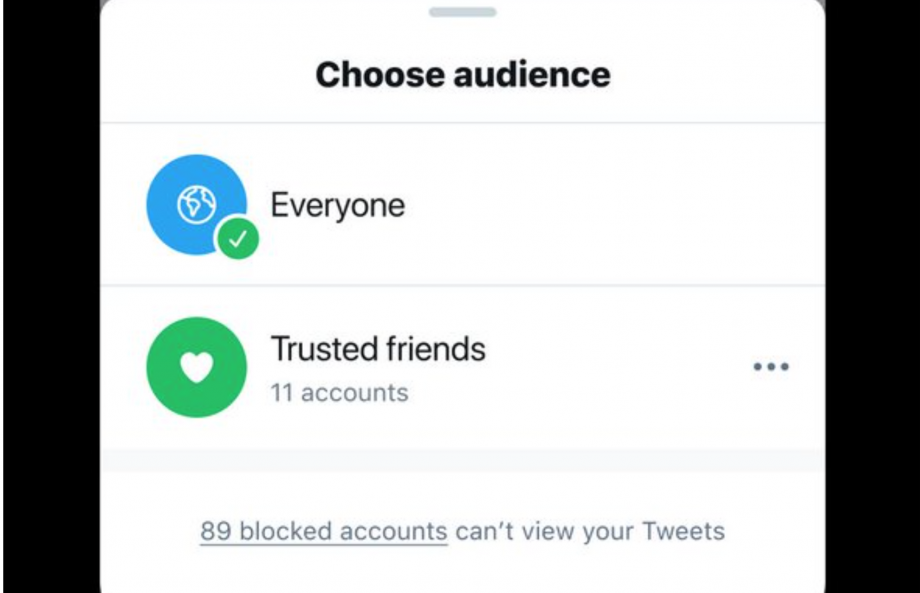Twitter’s latest concepts embrace all of your social media personas

Twitter is considering a feature that would allow users to make certain tweets visible only to a group of ‘trusted friends’.
In a new design concept, the social network is mulling the ability to limit the audience of a tweet, rather than posting publicly for the world to see and judge, or protecting it for the eyes of followers.
If it comes to fruition, the feature would enable people to tweet their personal and professional opinions without the need for an additional account, or the requisite filter.
So, for example, if you have a group of friends who follow the same football team, you could limit the audience so only those named to that ‘trusted friends’ group see it. That’ll reduce the risk of annoying those people who follow you for other reasons (not that you should care about the ‘stick to *insert topic here* crowd, anyway).
The feature somewhat resembles the ability to share Instagram stories with only close friends. One of my teacher friends uses this all the time to ensure hypocritical parents aren’t taking umbrage with her drinking and having fun in her own time.
Twitter says the feature, which is far from certain to become a reality, remains in the early stages of development.
A second potential feature, called Facets, takes things a step farther. It would enable users to sort tweets into hobbies or interests. That would allow for the tailoring of tweets for specific audiences, and would have a knock-on effect for followers. They could then choose to see your tweets about technology, rather than the football team you’re always taking about.
Finally, Twitter is considering a third feature that would enable users to specify words or phrases they do not wish to see in replies to tweets. If a reader attempts to use one of those words or phrases they will be asked to change the language.
So, if you don’t want to be called an “asshole” you can specify that, along with any other slurs you’d rather avoid. That might be a pretty long list.
This will more of a guideline than a rule, similar to the way Twitter will ask whether you really want to send that reply using potentially hurtful and harmful language.
There’s no guarantee any of these features will graduate to the main feature set, but it’s interesting to see Twitter’s line of thinking here. “Perhaps the right prompt (in the right moment) can help everybody be their best selves,” the company says via the @a_designr account, billed as “a @TwitterDesign-er in Crocs.”


